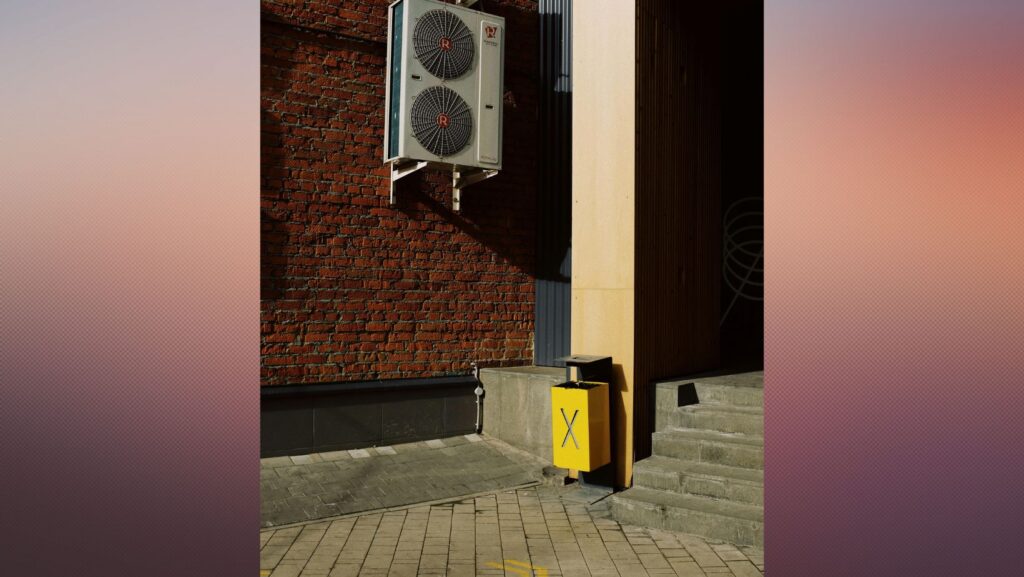
As we step into 2024, it’s time to turn our attention to the HVAC systems that are raising the bar in efficiency. We’re no longer just talking about keeping your home comfortable, but doing so in a way that’s kinder to your wallet and the environment.
I’ve spent years exploring the ins and outs of HVAC systems, and I’m excited to share my findings with you. In this comprehensive guide, we’ll delve into the highest efficiency HVAC systems that 2024 has to offer. Let’s embark on this journey to discover how you can make your home more energy-efficient, while still maintaining that cozy atmosphere you love.
Stay tuned as we uncover the systems that are redefining what it means to be efficient in the HVAC world. It’s not just about the destination, but the journey to a more sustainable future.
Understanding HVAC System Efficiency
Delving deeper into the HVAC system efficiency, it’s key to understand its dynamics. In simple terms, HVAC efficiency is about understanding how well your heating, ventilation, and air conditioning (HVAC) system performs while consuming the least amount of energy.
What Is HVAC Efficiency?
HVAC efficiency refers to a ratio of input and output, primarily measuring how much cooling or heating a system delivers per unit of energy it consumes. For example, the highest efficiency HVAC systems in locations like Glendale, pack a big punch without draining much of your energy budget. Translating its jargon, it’s akin to achieving maximum comfort, be it heat or cool, with minimum juice expenditure.
Important Efficiency Metrics to Know
The basics of HVAC efficiency can be understood by getting acquainted with certain metrics. To single out a few, consider metrics like SEER (Seasonal Energy Efficiency Ratio), EER (Energy Efficiency Ratio), and HSPF (Heating Seasonal Performance Factor).
SEER, for instance, denotes the cooling output during a typical cooling-season divided by the total electrical input across that same period. An HVAC system with higher SEER ratings indicates its efficiency at converting electricity to cooling.
EER, while similar to SEER, considers the ratio of cooling capacity (in BTUs) to power input (in watts) at a specific outdoor temperature. Remember – the higher the EER, the more efficient the system.
Last, but not least, HSPF is the ratio of the heat output to the energy input over a heating season. For homeowners in colder locations, or those trusting HVAC in Lakewood, CA, for example, higher HSPF values can be cost-effective in the long run.
In essence, understanding these efficiency metrics isn’t daunting. Whether you’re evaluating the highest efficiency HVAC systems of 2024, or probing deeper into the heart of HVAC dynamics, remember it converges to achieving maximum comfort while keeping energy use to a minimum.
The Importance of High-Efficiency HVAC Systems
Consistently pursuing advancements in HVAC systems enables a considerable stride towards a sustainable future.

The high-efficiency HVAC systems stand as pivotal instruments for balancing comfort and energy conservation. Let’s delve deeper into the substantial paybacks these systems offer.
Environmental Benefits
Renewed HVAC systems, like the ones I’m familiar with from Glendale HVAC, usher remarkable environmental benefits. Considered as a valuable upgrade, a high-efficiency HVAC system drastically reduces carbon footprint. Compared to traditional systems, it can curtail greenhouse gas emissions by around 30%, creating a significant impact. The reduced energy consumption indirectly means reduced fossil fuel usage in power plants, leading to a diminished pollutant release in our atmosphere.
Cost Savings Over Time
Over time, high-efficiency HVAC systems anthology considerable cost savings. Even though initial costs might be slightly higher compared to standard units, the long-term savings outweigh the upfront cost. Their operation cost can be notably less, with exact savings differing based on the system’s efficiency level and the individual’s usage patterns. Reliable systems, for instance, the trusted HVAC in Lakewood, CA, ensure an efficiency rate that undoubtedly saves money over time. These savings can be immensely beneficial to homeowners looking for cost-effective solutions to maintaining a comfortable living environment.
Choosing the Right High-Efficiency HVAC for Your Needs
As an expert in the field, I’m here to guide you through the factors that affect your choice of HVAC system based on your specific needs.
Assessing Your Space Requirements
First, I’d recommend performing a thorough analysis of your space. Understand the size and layout of the area that requires cooling or heating. A larger, open space, may benefit from a powerful system like the Glendale HVAC, which can distribute air evenly across a wide area.
However, if your space is characterized by smaller, separate rooms, a more flexible system such as the trusted HVAC in Lakewood, CA, might serve you better. It’s adept at providing temperature control in a compartmentalized manner. It’s essential to match the power of your HVAC system (given by BTU/h or tons) with your space size, measured in square feet.
Considering Climate and Location
Climate and location become crucial while choosing an HVAC system. If you’re based in a colder region, you would need an HVAC with excellent heating efficiency indicated by a high Heating Seasonal Performance Factor (HSPF) score. An arid climate, on the contrary, demands a source like the Glendale HVAC, renowned for its superior humidity control.
Similarly, in hotter regions, a system like the trusted HVAC in Lakewood, CA, offering a high Seasonal Energy Efficiency Ratio (SEER) and Energy Efficiency Ratio (EER), would be more beneficial. These efficiency metrics guarantee optimal performance even when outdoor temperatures soar. Always remember, location specificity bears a significant impact on the function and longevity of your HVAC system.
Installation and Maintenance Tips for Maximum Efficiency
While choosing high-efficiency HVAC systems like those from Glendale HVAC and trusted HVAC in Lakewood, CA, bears substantial importance, ensuring proper installation and regular maintenance plays an equally crucial role in achieving optimal performance and longevity.

Let’s dive deeper into the details under these two focuses.
Professional Installation vs. DIY
Bearing complexities and intricacies, HVAC system installation isn’t a task to be taken lightly. Carrying out the process flawlessly ensures your costly investment pays off in performance and durability.
Opting for a professional installation brings an assurance of meticulousness. Technicians possess the knowledge, skills, and tools necessary for efficient setup. They guarantee proper placement, correct sealings, and charge, along with ensuring ductwork integrity. A Glendale HVAC installer, for instance, will perform comprehensive load calculations, select the right size system, and install it impeccably.
On the other hand, a DIY installation might seem tempting for its upfront cost savings, but it’s riddled with potential pitfalls. It may lead to mismatched components, ineffective sealing, improper charging, or even warranty voidance. Thus, for systems as advanced and crucial as your HVAC, it’s wise to entrust the task to professionals.
Regular Maintenance Ideal Practices
An efficient HVAC system owes a lot to regular, thorough maintenance. It ensures longevity, peak performance, and preventively catches minor issues before they escalate. Here are some best practices I recommend:
- Scheduled Inspections: Schedule inspections at least twice a year, ideally before summers and winters when HVAC systems work the most. Professionals, like those from the trusted HVAC in Lakewood, CA, assess the condition with a fine-tooth comb and conduct necessary interventions.
- Filter Replacements: Replace filters frequently, at least every 90 days. Dirty filters obstruct airflow, reducing efficacy and leading to system strain.
- Regular Cleaning: Clean the outdoor condenser unit regularly. Debris accumulation hampers the heat transfer process, causing the system to work harder than necessary.
- Seal Inspection: Inspect ductwork for leaks annually. Sealing leaks enhances efficiency by preventing conditioned air loss.
Keeping these tips in mind, and implementing them will help in ensuring your HVAC system is always at the top of its game. Remember, your HVAC system is only as good as its care and installation. Use these tips to ensure your investment thrives.












